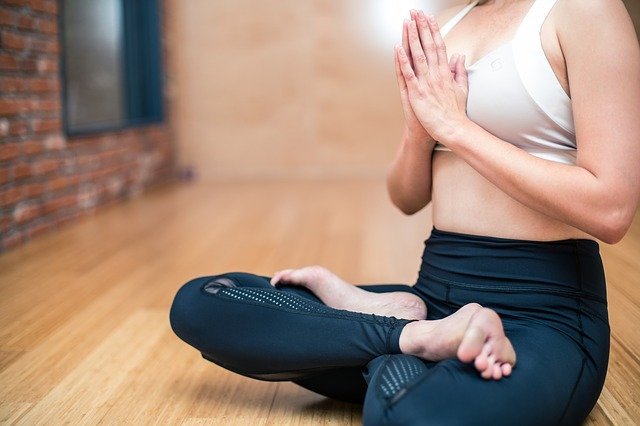
When facing the challenges presented by the current coronavirus pandemic, feeling stress is a normal reaction.
In fact, the experience of feeling stress is useful to alert us to possible danger, and this response dates to the very first humans.
Back then, as now, an immediate response to an acute stressor triggers a biological response that prepares us for “fight-or-flight.”
Such a response can include increased heart rate, more rapid breathing, sweating and tense muscles.
In our modern lives, sources of stress can linger much longer and cause us to be in this alert condition for a prolonged period. It is this extended, continuing state that can have a negative impact on our health.
When faced with sudden, sweeping challenges such as the steps we must take to reduce the public health risk of the novel coronavirus disease known as COVID-19, one important question for our own mental and physical health is how we react to the stress we all feel.
This is true whether we are working long hours in difficult environments on the front lines of medical care or hunkered down at home for undetermined lengths of time to avoid unintentionally spreading disease while doing our best to manage our work and care for our families.
“As we face this new challenge, it is important for us to maintain social distance for the protection of our most vulnerable neighbors,” said Dr. Carolyn M. Mazure, the Norma Weinberg Spungen and Joan Lebson Bildner Professor in Women’s Health Research and Professor of Psychiatry and of Psychology at Yale School of Medicine.
“At the same time, social distancing does not mean social isolation, and we must find a way to feel connected to others.
Having these connections is part of how we will cope, along with finding other ways to care for ourselves as well as others.”
Mental health experts have assembled proven steps we can all take to manage stress and avoid long-term emotional and physical health consequences that can include disturbances in eating and sleeping habits, headaches, as well as increased risk of depression, anxiety, heart disease, and type-2 diabetes.
So, here are some tips from the Centers for Disease Control and Prevention:
Things you can do to support yourself
Take breaks from watching, reading, or listening to news stories, including social media. Hearing about the pandemic repeatedly can be upsetting.
Take care of your body. Take deep breaths, stretch, or meditate. Try to eat healthy, well-balanced meals, exercise regularly, get plenty of sleep, and avoid alcohol and drugs.
Make time to unwind. Try to do some other activities you enjoy.
Connect with others. Talk with people you trust about your concerns and how you are feeling.
Advice for parents
Take time to talk with your child or teen about the COVID-19 outbreak. Answer questions and share facts about COVID-19 in a way that your child or teen can understand.
Reassure your child or teen that they are safe. Share with them how you deal with your own stress so that they can learn how to cope from you.
Monitor your family’s exposure to news coverage of the event, including social media. Children may misinterpret what they hear and can be frightened about something they do not understand.
Try to keep up with regular routines. If schools are closed, create a schedule for learning activities and relaxing or fun activities.
Be a role model. Take breaks, get plenty of sleep, exercise, and eat well. Connect with your friends and family members.
“The unknown scope and duration of this pandemic most certainly generates stress,” Dr. Mazure said.
“It is good to be alert to what is happening, so we can take measured precautions and work together to help keep everyone safe.
We can also take comfort in talking with others and self-care efforts that can make each day a positive step forward in adjusting to this unusually trying time.”



